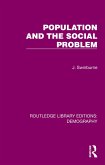

Gebundenes Buch
An Urgent Need for Clear Choices
2024
19. Juni 2024
Springer / Springer Nature Switzerland / Springer, Berlin / Wetenschappelijke Raad voor het Regering
978-3-031-58563-0
Ähnliche Artikel


23,95 €
Sofort per Download lieferbar
eBook, ePUB
30. Dezember 2020
Taylor & Francis eBooks


eBook, ePUB
10. März 2016
Taylor & Francis eBooks


eBook, ePUB
19. November 2015
Taylor & Francis eBooks


eBook, ePUB
15. April 2016
Taylor & Francis eBooks

Ähnlichkeitssuche: Fact®Finder von OMIKRON
